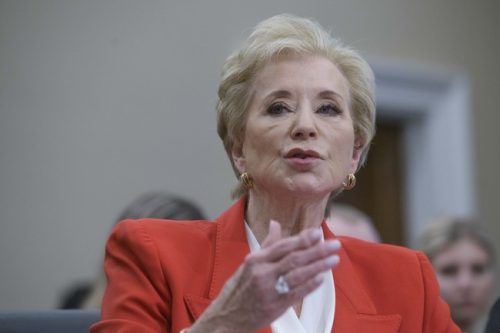California poured nearly half a billion dollars into a promised modernization of its 911 system, only to abandon the project after years of rollouts that failed to deliver, leaving taxpayers on the hook and emergency services without the upgrade they were promised.
Gavin Newsom’s record on state projects has become a cautionary tale for anyone who still trusts Sacramento to manage complex, essential systems. The Next Generation 911 effort, announced in 2019, was supposed to replace a 1970s-era emergency line and bring California into the modern age. Instead, the initiative collapsed amid cost overruns, mismanagement, and a design decision that fragmented the state into regional sectors.
The program’s price tag swelled to more than $450 million, and officials have now declared the initial regional approach a failure. That money was intended to prevent a single point of failure by dividing operations into four sectors, but the execution was flawed from the start. Residents facing wildfires and earthquakes will have to wait years longer for a functioning, reliable emergency system.
FireAid and other relief efforts have already highlighted how dollars can be shuffled through nonprofits without clear outcomes, and the state’s 911 debacle is another example of funds spent with little accountability. FireAid raised over $100M for victims of the Pacific Palisades wildfire, and critics have questioned where the money actually went. When government systems break and taxpayers pay the bill, the political consequences should follow.
California, a state that prides itself on being the epicenter of technology, has taught an absolute masterclass in bureaucratic incompetence — scrapping a new 911 system that cost more than $450 million in taxpayer money.
The staggering sum, which ballooned from initial estimates in 2019, was poured into the “Next Generation 911” project meant to modernize the state’s antiquated 1970’s-era emergency line. Six years later, the state’s emergency services agency (Cal OES) has thrown in the towel, declaring the initial regional design a complete failure.
Gavin Newscum spent $450 million in taxpayer dollars for a new 911 system.
They just announced they’re scrapping it because the design was a total failure.
$450 million down the drain.
The only thing Newscum excels at is wasting tax dollars on bad projects. pic.twitter.com/stNy0Pf0Ss
— Libs of TikTok (@libsoftiktok) November 24, 2025
In the midst of catastrophic wildfires and constant earthquake threats, residents will have to wait until at least 2030 for a modern functioning emergency system. As officials admit they have to essentially start over, taxpayers will have to foot the bill for hundreds of millions of dollars more.
At the core of the disaster was the state’s decision to implement a regionalized 911 system, dividing California into four operational sectors. While the idea behind it was to prevent a single point of failure, the execution was a mess.
Officials now say a functioning statewide system is unlikely before 2030, which is a striking admission when the risks of natural disaster are constant. Four years in political time can feel like an eternity for people who need emergency services that work right now. Promises of swift modernization ring hollow when delivery keeps slipping and costs keep climbing.
Imagine the same pattern of ambition followed by chaos on a national scale and it’s easy to see why voters are fed up with politicians who oversell results and underdeliver. The mistake of favoring complex regional designs over a simpler, accountable rollout has real consequences for public safety. Management failures like this undermine trust in government and raise legitimate calls for accountability.
Where did all that money go? That question haunts any public project that ends in failure. Long budgets and opaque subcontracting create conditions where accountability is optional and blame gets shuffled around the bureaucratic deck. Government is the only place where people can fail upwards.
High-profile voices have called out the mismanagement publicly, and the outrage is understandable. Actress, director, and producer Justine Bateman laid out Newsom’s costly failures:
“How this guy isn’t in jail for failure to execute fiduciary responsibility with our tax dollars is a total mystery,” Bateman wrote.
Critics point to a pattern: grand announcements, headline-friendly launches, and eventual breakdowns that leave taxpayers and everyday Californians picking up the tab. It’s because he’s (D)ifferent, as some observers put it, and that difference shows up in how priorities are managed and how consequences are handled.
Accountability starts with clear audits, transparent contracts, and leaders who accept responsibility when systems fail. Until Sacramento adopts that approach, Californians will have reason to doubt promises about technology, safety, and stewardship of public funds. The costs of mismanagement are measured not just in dollars but in the time people wait for help when they need it most.






